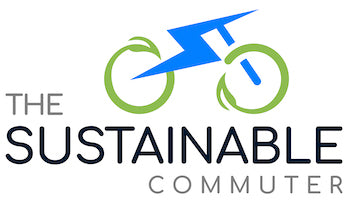
The Importance of Sustainable Transportation Fuels
Share
Transportation and the Importance of Sustainable Transportation Fuels
Transportation is a vital part of our daily lives, enabling us to travel to work, school, and other destinations. However, the reliance on fossil fuels for transportation has serious environmental consequences, including air pollution, greenhouse gas emissions, and climate change. To mitigate these issues, it is crucial to transition to sustainable transportation fuels, which are renewable, low-carbon alternatives to fossil fuels. In this blog post, we will explore the importance of sustainable transportation fuels and the role of government policies, technological advances, and financial institutions in promoting their adoption.
Why Sustainable Transportation Fuels Are Important
The Impact of Fossil Fuels on the Environment
Fossil fuels, such as gasoline and diesel, have been the primary sources of energy for transportation for many years. However, their extraction, production, and combustion contribute significantly to environmental degradation. The burning of fossil fuels releases greenhouse gases, such as carbon dioxide (CO2), into the atmosphere, which trap heat and contribute to global warming. This phenomenon, known as climate change, has far-reaching impacts, including rising sea levels, extreme weather events, and disruptions to ecosystems.
Moreover, the combustion of fossil fuels also releases air pollutants, such as nitrogen oxides (NOx) and particulate matter (PM), which have detrimental effects on air quality and human health. These pollutants contribute to respiratory diseases, cardiovascular problems, and premature deaths. The transportation sector is a significant contributor to air pollution, particularly in urban areas with heavy traffic congestion.
Benefits of Sustainable Transportation Fuels
Sustainable transportation fuels offer several advantages over traditional fossil fuels. Firstly, they have lower or zero greenhouse gas emissions, helping to mitigate climate change. For example, electric vehicles (EVs) produce zero tailpipe emissions, reducing air pollution in urban areas. Additionally, sustainable transportation fuels can be produced from renewable sources, such as solar, wind, and biomass, ensuring their long-term availability and reducing dependence on finite fossil fuels.
Furthermore, sustainable transportation fuels often have lower lifecycle greenhouse gas emissions compared to fossil fuels. Lifecycle emissions take into account the entire supply chain, including fuel production, transportation, and use. For instance, electric vehicles powered by renewable electricity have lower lifecycle emissions compared to gasoline-powered vehicles. This makes sustainable transportation fuels an important tool in achieving carbon neutrality and meeting emissions reduction targets.
Government Policies and Technological Advances That Support Sustainable Transportation Fuels
Government Policies
Government policies play a crucial role in promoting the adoption of sustainable transportation fuels. They can provide incentives, regulations, and funding to support the development and deployment of sustainable transportation technologies.
Tax Credits for Electric Vehicles
Many governments offer tax credits and incentives to encourage the purchase of electric vehicles. These incentives reduce the upfront costs of EVs and make them more affordable for consumers. For example, in the United States, federal tax credits of up to $7,500 are available for eligible EV purchases. These incentives have been instrumental in driving the growth of the electric vehicle market and increasing consumer adoption.
Regulations on Emissions
Governments can also set regulations and standards to limit emissions from vehicles. For example, the European Union has implemented strict CO2 emissions standards for new cars, incentivizing automakers to produce more fuel-efficient and low-emission vehicles. Similarly, California has set aggressive targets for zero-emission vehicles, pushing automakers to invest in electric vehicle technology.
Technological Advances
Technological advancements are crucial in the development and adoption of sustainable transportation fuels. Here are two examples of innovative technologies that show promise in the transition to sustainable transportation:
Hydrogen Fuel Cells
Hydrogen fuel cells convert hydrogen gas into electricity, emitting only water vapor as a byproduct. Fuel cell vehicles offer the advantages of electric vehicles, such as zero tailpipe emissions, but with longer driving ranges and shorter refueling times. Several automakers, such as Toyota and Hyundai, have already introduced fuel cell vehicles to the market, and advancements in hydrogen production and infrastructure are making this technology more viable.
Solar-powered Vehicles
Solar-powered vehicles harness energy from the sun to generate electricity for propulsion. While solar-powered cars are still in the early stages of development, they have the potential to revolutionize transportation by providing clean, renewable energy directly from the sun. Solar-powered vehicles could be particularly well-suited for regions with abundant sunlight, reducing dependence on grid electricity and further reducing emissions.
The Role of Financial Institutions in Promoting Sustainable Transportation Fuels
Financial institutions, such as banks and investment firms, have a significant role to play in promoting sustainable transportation fuels. They can provide funding, investment, and expertise to support the development and deployment of sustainable transportation technologies. Here are two examples of financial institutions that are actively promoting sustainable transportation:
JPMorgan Chase: Investing in Renewable Energy
JPMorgan Chase, one of the largest banks in the United States, has made significant commitments to renewable energy and sustainable transportation. The bank has pledged to facilitate $200 billion in clean financing by 2025, supporting projects that promote renewable energy, energy efficiency, and sustainable transportation. JPMorgan Chase also offers financing solutions for electric vehicle infrastructure, helping to expand the charging network and support the adoption of electric vehicles.
Citibank: Supporting Electric Vehicle Adoption
Citibank, a global financial institution, has also recognized the importance of sustainable transportation and electric vehicles. The bank has partnered with EV charging infrastructure providers to offer discounted rates for Citibank cardholders, making electric vehicle ownership more affordable and accessible. Additionally, Citibank provides financing options for electric vehicle purchases, offering competitive loan rates and flexible terms.
Conclusion
Sustainable transportation fuels are essential for mitigating the environmental impacts of the transportation sector. They offer numerous benefits, including reduced greenhouse gas emissions, improved air quality, and long-term energy security. Government policies, technological advancements, and the support of financial institutions are all crucial in promoting the adoption of sustainable transportation fuels. As individuals, we can contribute to this transition by choosing sustainable modes of transportation, such as electric vehicles, and supporting companies and organizations that prioritize sustainability. Together, we can create a cleaner, greener future for transportation.
